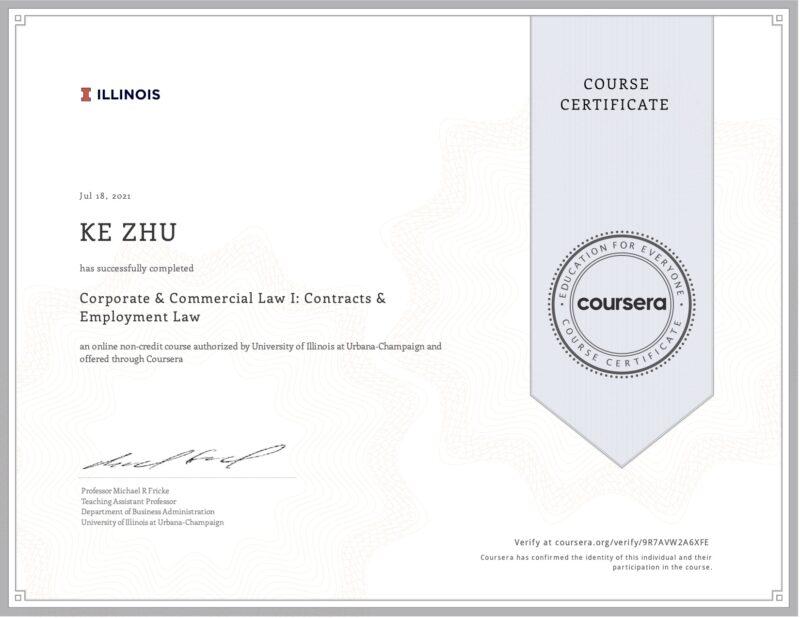Contracts & Employment LawUniversity of Illinois at Urbana-Champaign This is a very useful course for non-experts, because we all do business every day. The course firstly introduced all elements of a valid contract, a little theoretical, but instructive to help identify the reasons why an agreement is not enforceable. Besides rules from common law, the…
Tag: Corporate & Commercial Law I
Agency and Employment Law
Agency Agency is nothing more than the idea that you give somebody else authority to act on your behave. There is a principal (the person in charge) and an agent (who takes on some responsibility from the principal). There are 4 types of common agency relationship: Agent’s Duties Agent’s Rights Principal’s Duties Principle’s Rights Tort…
Enforcement of Contracts
Third party beneficiaries Third party beneficiaries are people who benefit under a contract, but are not part to the contract. What rights do third party beneficiaries have? The answer depends on what type of beneficiary each of these parties is: ONLY intended beneficiaries can enforce agreements as a third party, who must have been vested….
Sales Contracts: UCC Article 2
UCC stands for Uniform Commercial Code, UCC Article 2 pertains sales of goods, which provides additional rules when it comes to contracts for the sales of tangible, movable goods. Sometimes a contract calls for both goods and services, in which case use “Predominant factor test’ to distinguish between them. The question is “What is the…
Basics of Contracts
A contract is nothing more than an enforceable agreement. The person who makes an offer is offeror, whose counter-party is offeree, who has the power to form a contract. ‘Valid contract’ mean either party can enforce it, in contrast ‘Void contract’ is unenforceable by either party. Some where in the middle between valid and void…




